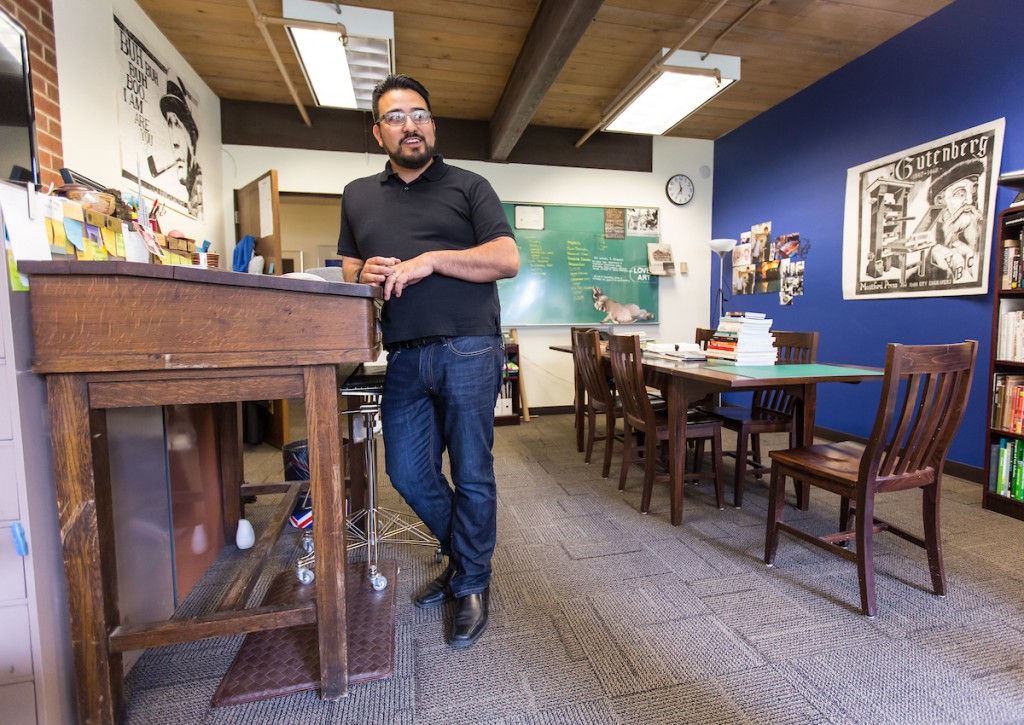Page 26 • (1,538 results in 0.034 seconds)
-
News for Pacific Lutheran University.
PLU launches new Master of Social Work (MSW) degree PLU has added a Master of Social Work (MSW) degree to its offerings and is now accepting applicants for the fall of 2024. Rooted in PLU’s tradition of academic excellence and community engagement, the new MSW program will equip aspiring social work professionals with the skills… September 20, 2023 Master of Social WorkSocial Work
-
News articles and blog posts from Pacific Lutheran University.
PLU launches new Master of Social Work (MSW) degree PLU has added a Master of Social Work (MSW) degree to its offerings and is now accepting applicants for the fall of 2024. Rooted in PLU’s tradition of academic excellence and community engagement, the new MSW program will equip aspiring social work professionals with the skills… September 20, 2023 Master of Social WorkSocial Work
-
News articles and blog posts from Pacific Lutheran University.
PLU launches new Master of Social Work (MSW) degree PLU has added a Master of Social Work (MSW) degree to its offerings and is now accepting applicants for the fall of 2024. Rooted in PLU’s tradition of academic excellence and community engagement, the new MSW program will equip aspiring social work professionals with the skills… September 20, 2023 Master of Social WorkSocial Work
-
Master of Social Work news for Pacific Lutheran University.
PLU launches new Master of Social Work (MSW) degree PLU has added a Master of Social Work (MSW) degree to its offerings and is now accepting applicants for the fall of 2024. Rooted in PLU’s tradition of academic excellence and community engagement, the new MSW program will equip aspiring social work professionals with the skills… September 20, 2023 Master of Social WorkSocial Work
-
Social Work news for Pacific Lutheran University.
PLU launches new Master of Social Work (MSW) degree PLU has added a Master of Social Work (MSW) degree to its offerings and is now accepting applicants for the fall of 2024. Rooted in PLU’s tradition of academic excellence and community engagement, the new MSW program will equip aspiring social work professionals with the skills… September 20, 2023 Master of Social WorkSocial Work
-
In recent years, it has become clear that in order to achieve equity in healthcare access and outcomes, the U.S. needs to intentionally increase the diversity of its healthcare providers.
, focus on health disparities, interview skills and practice, and longitudinal mentorship. GUSOM Academy for Research, Clinical, and Health Equity Scholarship (ARCHES)- GUSOM ARCHES aims to strengthen the research and clinical skills of promising undergraduate students and prepare them for successful matriculation into medical school. Association of State Public Health Nutritionists (ASPHN) (Multiple locations) – ASPHN’s Health Equity Internship Program is a 12-week paid internship created to support
-
In recent years, it has become clear that in order to achieve equity in healthcare access and outcomes, the U.S. needs to intentionally increase the diversity of its healthcare providers.
, focus on health disparities, interview skills and practice, and longitudinal mentorship. GUSOM Academy for Research, Clinical, and Health Equity Scholarship (ARCHES)- GUSOM ARCHES aims to strengthen the research and clinical skills of promising undergraduate students and prepare them for successful matriculation into medical school. Association of State Public Health Nutritionists (ASPHN) (Multiple locations) – ASPHN’s Health Equity Internship Program is a 12-week paid internship created to support
-

By Michael Halvorson. Halvorson is director of Innovation Studies at Pacific Lutheran University. Design has become an integral component of the innovation process. Leading businesses such as Amazon, Apple, Nike, Disney, Dyson, and Airbnb are all recognized for their award-winning designs that strive to…
campus for both his passion for student learning and also his knack for teaching design principles to all students, including those lucky enough to be Design majors in the B.F.A. program. Avila’s influence on PLU’s Innovation Studies program is significant. Because of his guidance, all students working toward the Innovation Studies minor must develop essential skills in either Communications or Design, in addition to the essential coursework that they take in business, economics, history, and ethics
-
PLUS 100 is a one-credit course that is part of PLU's core curriculum (i.e., general education requirements) and required for all new first-year students as part of the First Year Experience Program
, develop strategies, and hone skills and capacities for college success, including understanding the roles and responsibilities of university students, faculty, and staff, and alumni/community partners. Community connections, academic support, and personal wellness will be explored within the context of the PLU values of diversity, justice, and sustainability (DJS). Section themes include: Intended Academic Major (e.g., Intended Nursing, Music, STEM, Education, or Business majors) Social Identity
-
The following list of things will well help your application process go smoothly: Resume or Curriculum Vitae (CV), created especially for research Letters of Recommendation (usually 2) Personal
information into their application. A resume or CV will be useful to have as a resource moving forward in your educational and professional journey. A resume is a concise, formatted, easy-to-read summary of your education, experience, and skills. It’s ideally 1 page, but sometimes 2 pages can be OK. Prepare a resume for research with specific examples of research in the sciences such as lab skills, classes, and programs. A curriculum vitae (CV) is a more comprehensive document similar to a resume but
Do you have any feedback for us? If so, feel free to use our Feedback Form.


